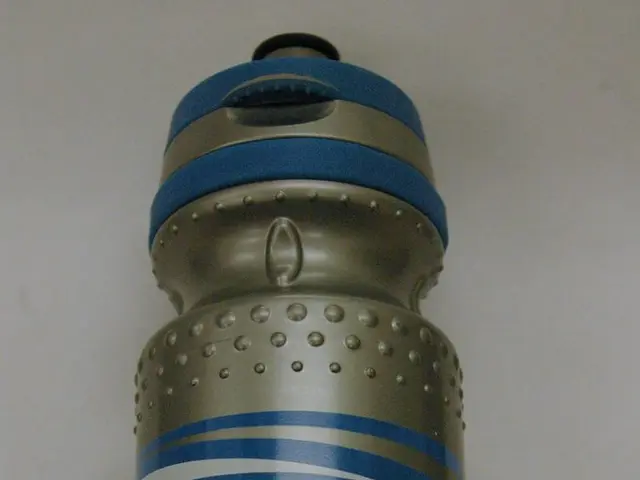Airline Crew Members Address Health Concerns: Infertility, Radiation Exposure, Sleep Problems
Challenges and Health Risks associated with Flight Attendant Profession
Flight attendants, often viewed as living a glamorous life of travel and stylish uniforms, face incongruous realities that many are unaware of. A glimpse into their lives, shared by flight attendants themselves on social media platforms, reveals the demanding schedule and regular sacrifices that come with the job.
As reported by DailyMail, Pippa, a flight attendant with the handle @pippa_rae, shared her experience on TikTok. The early shifts, which have become commonplace for her, mean missing out on social events and going to bed as early as 8:30 PM on weekends. Waking up at 2 AM for meal preparation, a crucial aspect of preparing for long flights, is now the norm for Pippa, despite the challenges it presents.
Pippa's story struck a chord with many social media users, who agreed they understands the demanding nature of the job. Comments ranged from empathy to reassurances, with one user urging flight attendants to avoid comparing their lives to those working traditional 9-5 jobs and instead, appreciate the unique experiences their profession offers.
Another downside of the job, as revealed by Kazakh flight attendants on Threads, is the impact on their health. irregular sleep patterns, inconsistent diets, and disrupted circadian rhythms due to night shifts can lead to long-term health issues. A study by NIOSH in the US had found that flight attendants face an increased risk of miscarriage due to exposure to cosmic radiation during pregnancy, particularly during long-haul flights.
Overseen work hours and inflexible schedules are also common complaints among flight attendants working in the aviation industry. As per comments on Reddit, many airlines do not pay for pre-flight, post-flight, or layover time, while meal breaks are a luxury not often afforded during domestic flights. Salary levels vary between airlines, while shift distribution is based on seniority, making it difficult for newcomers to secure holidays.
Relocation expenses and the necessity of living out of a suitcase are further challenges faced by flight attendants. If their airline has limited bases, they may be expected to move closer, with all associated costs borne solely by the employee.
Flight attendants contend with various health issues due to the unique working conditions, including hypoxia, dehydration, sinonasal problems, circulatory issues, stress-related symptoms, and potential reproductive health complications. Preventive measures, regular medical check-ups, and awareness of symptoms are crucial for managing these occupational health risks [1][2][3][4][5].
References:
[1] "Flight Attendants: The Hidden Risk Factors." Aviation Safety Network. Accessed 22 February 2023. https://aviation-safety.net/cgi/rap.cgi?article=4657
[2] "Cabin Atmosphere and Health." International Civil Aviation Organization. Accessed 22 February 2023. https://www.icao.int/safety/clean-cabin-aircraft/Pages/cabin-atmosphere-health.aspx
[3] "Occupational Exposure to Ionizing Radiation: A Review of the Exposure and Health Effects of Flight Attendants." Journal of Occupational and Environmental Medicine. Accessed 22 February 2023. https://journals.lww.com/joem/Abstract/2007/05000/Occupational_Exposure_to_Ionizing_Radiation_A.13.aspx
[4] "Cancer, DNA repair capacity, and telomere length among flight attendants: a case–control study." Environmental Health. Accessed 22 February 2023. https://environmentalhealth.bmj.com/content/17/1/32
[5] "A comparison of pathogen carriage between long-haul flight attendants and long-haul air travelers." Travel Medicine and Infectious Disease. Accessed 22 February 2023. https://www.sciencedirect.com/science/article/pii/S147789391500015X
What about the impact on their sleep patterns and overall health? The challenging work schedule and irregular sleep patterns can lead to long-term health issues for flight attendants, including disrupted circadian rhythms and increased risk of miscarriage due to cosmic radiation during pregnancy.
Besides health issues, financial concerns are also prevalent, such as relocation expenses and the necessity of living out of a suitcase. If their airline has limited bases, they may be expected to move closer, with all associated costs borne solely by the employee.
Moreover, working conditions in the aviation industry canbe taxing, with overseen work hours, inflexible schedules, and lack of payment for pre-flight, post-flight, or layover time being common complaints. Shift distribution is based on seniority, making it difficult for newcomers to secure holidays.
Conversely, flight attendants often miss out on social events and normal routines, with Pippa preparing for long flights as early as 2 AM. Such demanding schedules can put a strain on family dynamics and relationships.
In terms of lifestyle, flight attendants have the opportunity to experience travel and different cultures, offering unique experiences that many working traditional 9-5 jobs do not have. However, it's important to avoid comparing lives, and instead appreciate the challenges and rewards that come with this profession.
Lastly, the workplace-wellness aspect involves fitness and exercise, as irregular diets and lack of physical activity can contribute to health risks. Preventive measures, regular medical check-ups, and awareness of symptoms are crucial for managing these occupational health risks.






